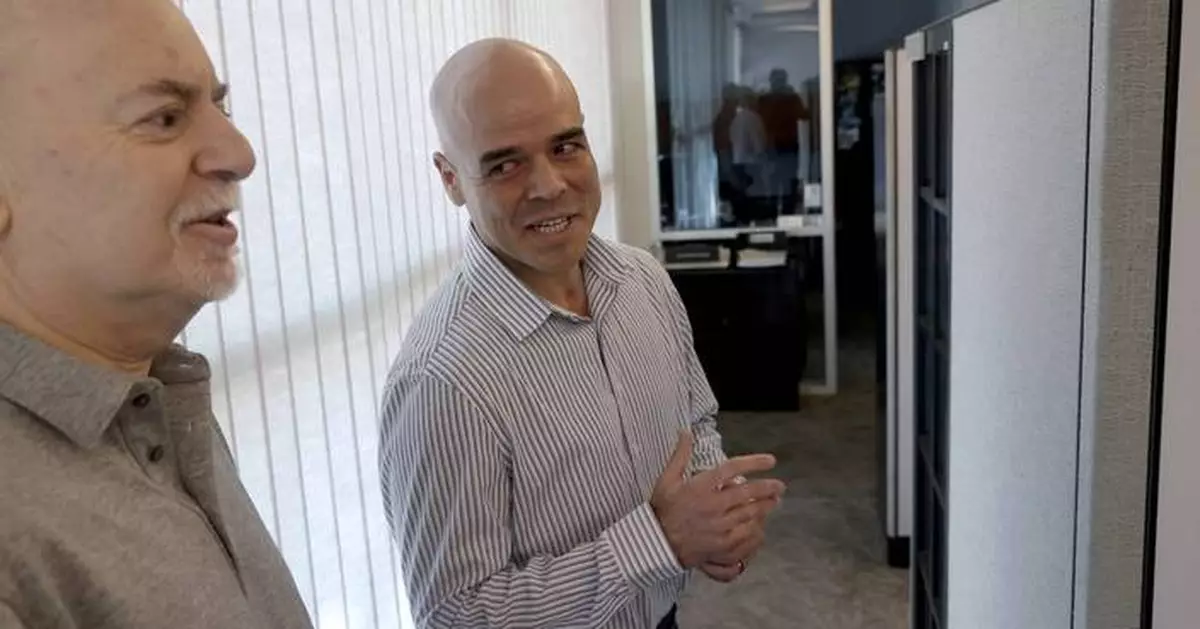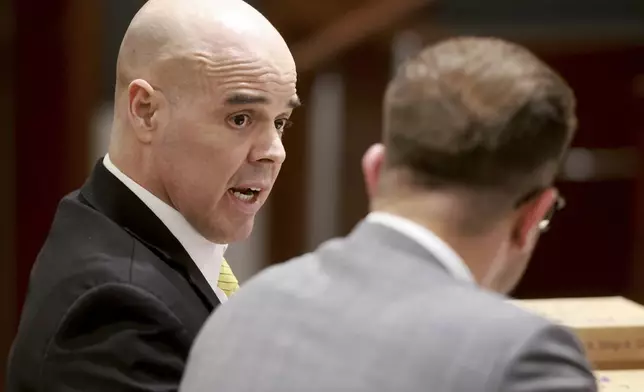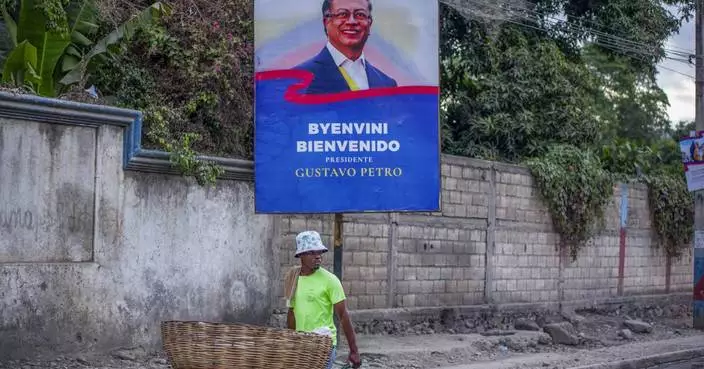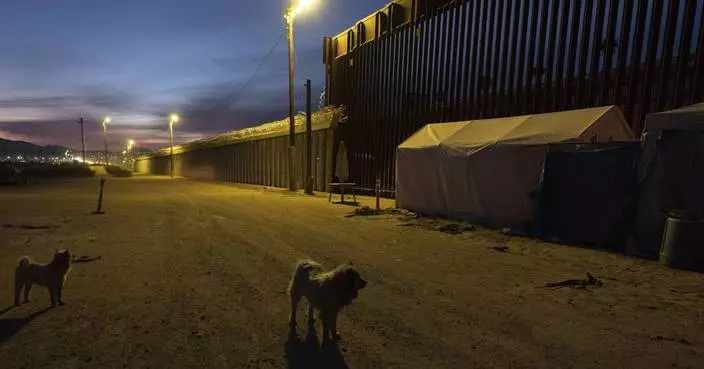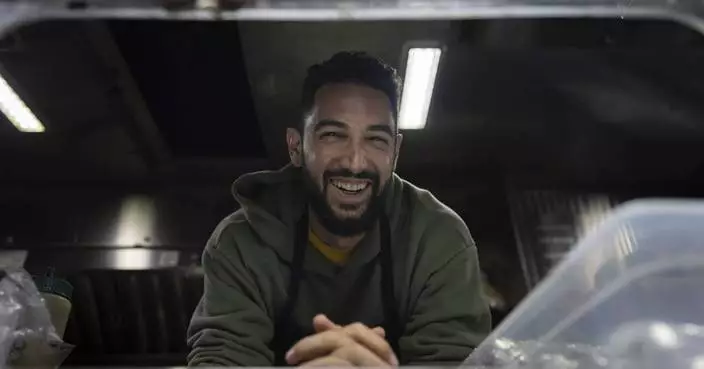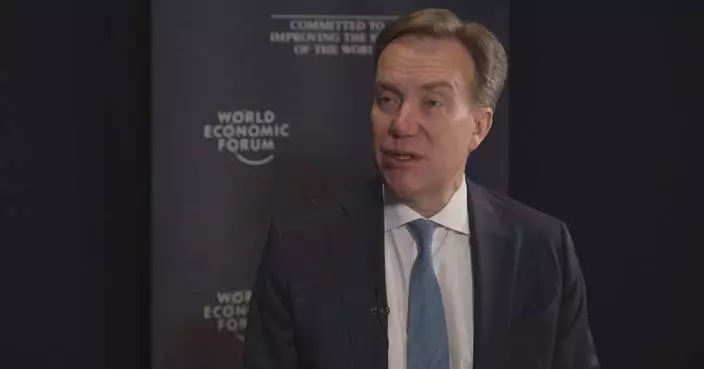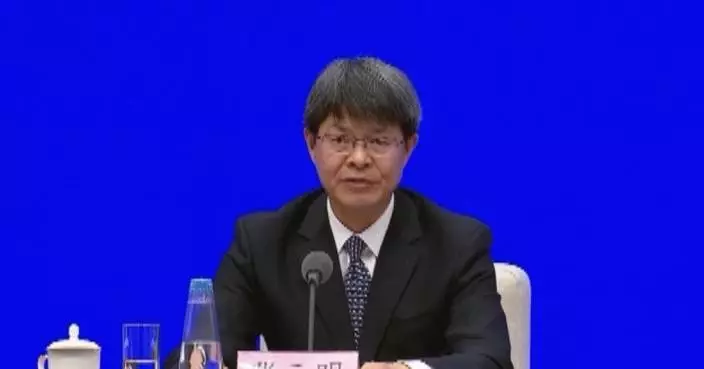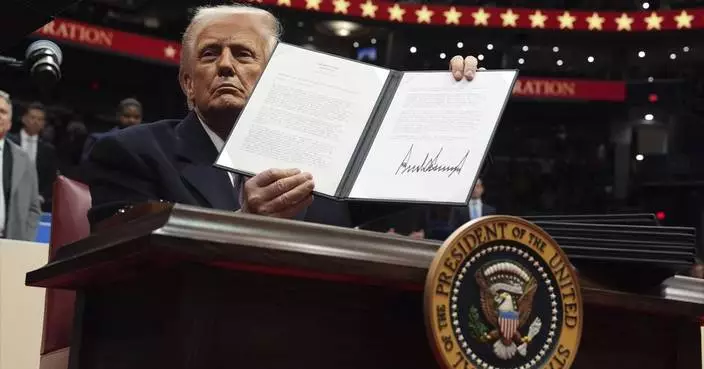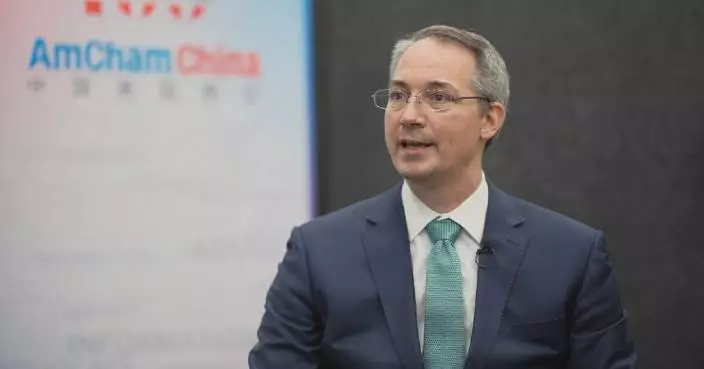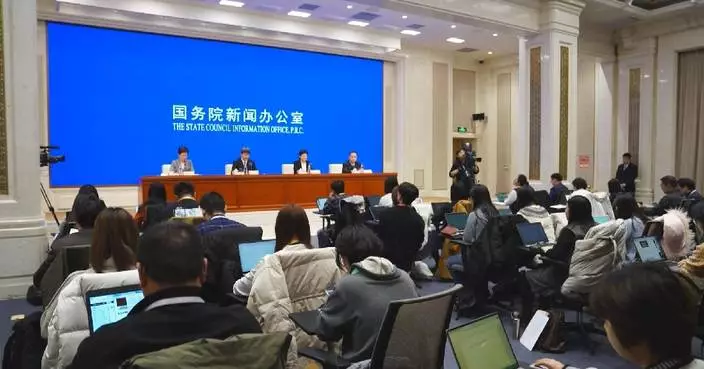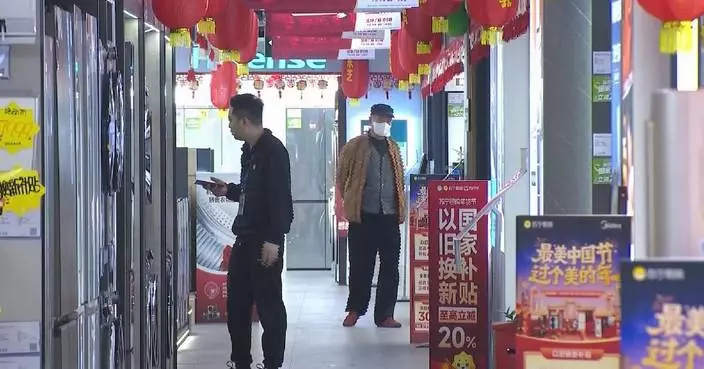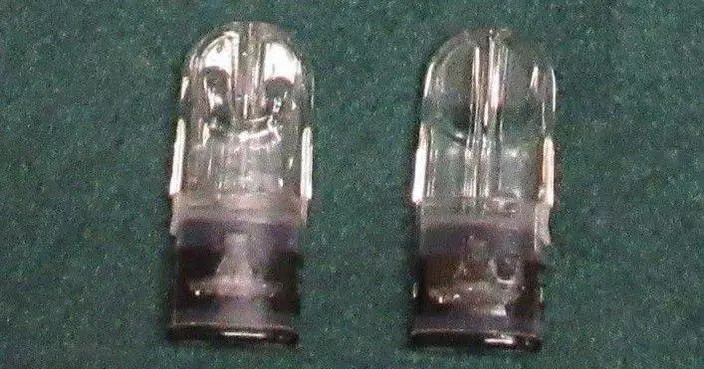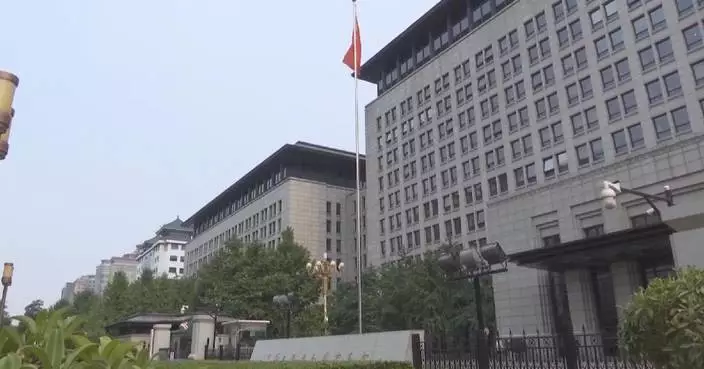LAS VEGAS (AP) — The trial of a Las Vegas-area politician accused of killing an investigative reporter who wrote articles critical of him began Monday, after the judge denied the defendant's last request to dismiss the case and jury selection began.
The death of reporter Jeff German after 44 years developing deep confidential sources in the city, its government and its courthouses, and the arrest several days later of Robert Telles, the elected public official accused of killing him, stunned Sin City and the world of journalism.
Click to Gallery
Robert Telles, left, speaks with attorney Michael Horvath on the first day of jury selection for his trial in the murder of Las Vegas Review-Journal investigative journalist Jeff German, at the Regional Justice Center in Las Vegas, Monday, Aug. 12, 2024. (K.M. Cannon/Las Vegas Review-Journal via AP, Pool)
Robert Telles arrives in court on the first day of jury selection for his murder trial at the Regional Justice Center in Las Vegas, Monday, Aug. 12, 2024. Telles, a former Clark County public administrator, is accused of killing Las Vegas Review-Journal investigative journalist Jeff German. (K.M. Cannon/Las Vegas Review-Journal via AP, Pool)
Robert Telles arrives in court on the first day of jury selection for his murder trial at the Regional Justice Center in Las Vegas, Monday, Aug. 12, 2024. Telles, a former Clark County public administrator, is accused of killing Las Vegas Review-Journal investigative journalist Jeff German. (K.M. Cannon/Las Vegas Review-Journal via AP, Pool)
FILE - Former Clark County Public Administrator Robert Telles, who is accused of murdering investigative reporter Jeff German, argues in court during a hearing at the Regional Justice Center in Las Vegas Wednesday, Oct. 18, 2023. (K.M. Cannon/Las Vegas Review-Journal, File)
FILE - Clark County Public Administrator Robert Telles, right, talks to Las Vegas Review-Journal reporter Jeff German in his Las Vegas office, on May 11, 2022. (K.M. Cannon/Las Vegas Review-Journal via AP, File)
FILE - Outgoing Clark County Public Administrator Robert Telles washes his car outside his home, Sept. 6, 2022, in Las Vegas. (Benjamin Hager/Las Vegas Review-Journal via AP, File)
FILE - Former Clark County Public Administrator Robert Telles, who is accused of murdering investigative reporter Jeff German, argues in court during a hearing at the Regional Justice Center in Las Vegas, Oct. 18, 2023. (K.M. Cannon/Las Vegas Review-Journal via AP, File)
FILE - Clark County Public Administrator Robert Telles, right, talks to Las Vegas Review-Journal reporter Jeff German in his Las Vegas office, May 11, 2022. (K.M. Cannon/Las Vegas Review-Journal via AP, File)
“It turned everything upside down," said Tom Pitaro, a veteran Las Vegas defense attorney who knew German well and also taught Telles in law school at the University of Nevada, Las Vegas, a decade ago. "I think people are in shock about how this could come about.”
Heading into court on Monday, Telles' defense attorney, Robert Draskovich, called the case “difficult," but said Telles looked forward to telling his story to a jury that prosecutors and defense attorneys intend to choose from 300 people who received written questionnaires asking what they had heard about the case.
Telles has pleaded not guilty to open murder and could face life in prison if convicted. He has remained jailed for almost two years while preparing for trial. He has said he didn’t kill German, but did not say during jailhouse interviews with The Associated Press and other media what he was doing the day German was attacked and killed.
Telles has not provided a statement to police, other than “three surreptitious recordings the day of his arrest,” his attorney said. He maintains he has been framed and that police mishandled the investigation.
“He’s pretty adamant that he wants to tell his story,” Draskovich told the AP.
Prosecutors Pamela Weckerly and Christopher Hamner have declined outside court to comment about the case. Clark County District Attorney Steve Wolfson, who also knew German, said in a statement Monday that “the state of Nevada is looking forward, on behalf of Jeff and his family, to finally seeing that justice is achieved."
The killing on Labor Day weekend 2022 drew widespread attention. German, 69, became the only journalist killed in the U.S. among at least 67 news media workers slain worldwide that year, according to the New York-based Committee to Protect Journalists.
Originally from Milwaukee, German was widely respected for reporting about courts, organized crime, government corruption, political scandals and mass shootings, first at the Las Vegas Sun and then at the Las Vegas Review-Journal.
Prosecutors say articles that he wrote for the Review-Journal in early 2022 about Telles and a county office in turmoil were a motive for the killing.
German was found slashed and stabbed to death in a side yard outside his home where Telles was accused in a criminal complaint of “lying in wait” for him to come outside.
Telles, 47, was arrested five days later, after police circulated video of a person wearing an orange work shirt and a wide-brim, straw hat toting a shoulder bag and walking toward German’s home. Police also released images of a distinctive maroon SUV like one that a Review-Journal photographer saw Telles washing outside his home several days after the killing.
Telles grew up in El Paso, Texas, and lived in Colorado before moving to Las Vegas. He became a lawyer in 2015 and ran as a Democrat in 2018 to become Clark County administrator of estates. He lost his elected position after his arrest and his law license was suspended.
Three hundred prospective jurors filled out questionnaires about what they have heard about German’s killing and Telles’ arrest. Interviewing and empaneling 12 jurors and several alternates was expected to take several days. Testimony is expected to take less than two weeks. Prosecutors are not seeking the death penalty.
On Monday, Clark County District Court Judge Michelle Leavitt quickly denied a final written request by Telles and Draskovich to dismiss the case and call off the trial.
In a court filing, Telles maintained he was illegally detained by police before his arrest; that officer body-worn camera video of the arrest was improperly deleted; and hospital blood tests taken following his treatment in custody for what he has called self-inflicted slash wounds to his wrists weren't included as evidence in his case.
Leavitt also rejected other requests to dismiss the case while Telles hired and fired attorneys and served for several months as his own defense lawyer. Telles twice tried to have Leavitt removed from his case, arguing the judge was biased against him.
German's relatives have not spoken publicly about the killing. They declined through a family spokesperson and friend to comment on the trial.
Prosecutors say they have strong evidence, including DNA believed to be from Telles found beneath German’s fingernails and cut-up pieces of a straw hat and shoes found at Telles' house that resembled those worn by the person seen on video wearing the orange shirt outside German's home.
Telles wanted his trial to occur quickly. But progress was delayed in part by a legal battle the Review-Journal took to the state Supreme Court to protect public disclosure of confidential sources on German’s cellphone and computers.
The newspaper argued names and unpublished material were protected from disclosure by the First Amendment and Nevada state law. Police argued their investigation wouldn’t be complete until the devices were searched for possible evidence. The court gave the newspaper, its lawyers and consultants time to review the files first.
The material was finally turned over on Monday, prosecutors told the judge. Telles stood in court in a white shirt, yellow striped tie, dark jacket and gray slacks and waived his ability to review the material before proceedings began.
Telles also lost a bid to have Leavitt issue a ruling blocking testimony about a discrimination and hostile workplace lawsuit that four women who work in the office he headed have pending in federal court against Telles and Clark County.
The Committee to Protect Journalists has gathered records of 17 journalists and media workers killed in the U.S since 1992, including 15 whose deaths were found to be work-related.
“Killings of journalists in the U.S. are exceedingly rare, thankfully," said Katherine Jacobsen, a program coordinator at the organization.
Gabe Rottman, at the Reporter’s Committee for Freedom of the Press in Washington, D.C., agreed that killings are uncommon. He called journalism “essential for the public to be able to hold public officials accountable."
“The most severe way to shut the public's eyes to what's going on is to threaten a journalist's life for doing their job," Rottman said. "That shouldn’t happen.”

Robert Telles, left, speaks with attorney Michael Horvath on the first day of jury selection for his trial in the murder of Las Vegas Review-Journal investigative journalist Jeff German, at the Regional Justice Center in Las Vegas, Monday, Aug. 12, 2024. (K.M. Cannon/Las Vegas Review-Journal via AP, Pool)
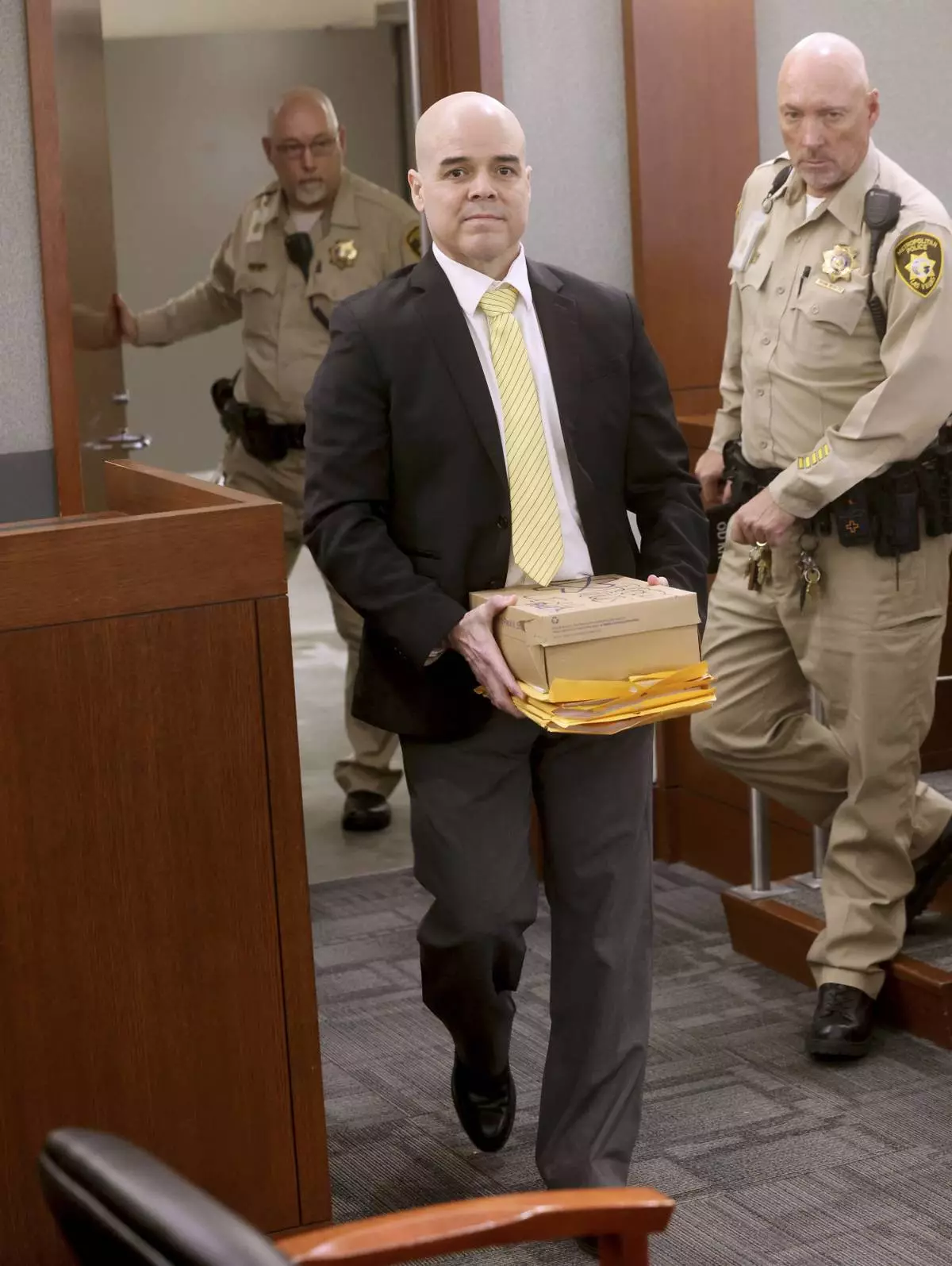
Robert Telles arrives in court on the first day of jury selection for his murder trial at the Regional Justice Center in Las Vegas, Monday, Aug. 12, 2024. Telles, a former Clark County public administrator, is accused of killing Las Vegas Review-Journal investigative journalist Jeff German. (K.M. Cannon/Las Vegas Review-Journal via AP, Pool)
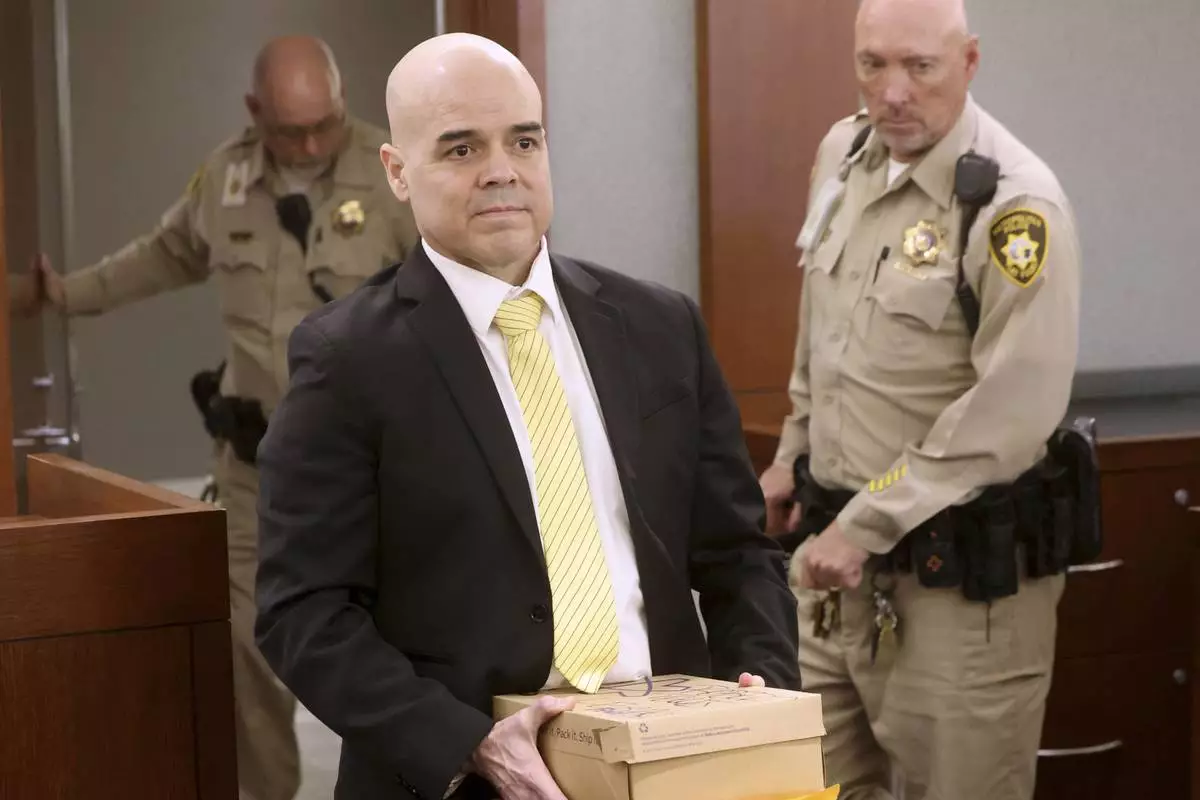
Robert Telles arrives in court on the first day of jury selection for his murder trial at the Regional Justice Center in Las Vegas, Monday, Aug. 12, 2024. Telles, a former Clark County public administrator, is accused of killing Las Vegas Review-Journal investigative journalist Jeff German. (K.M. Cannon/Las Vegas Review-Journal via AP, Pool)
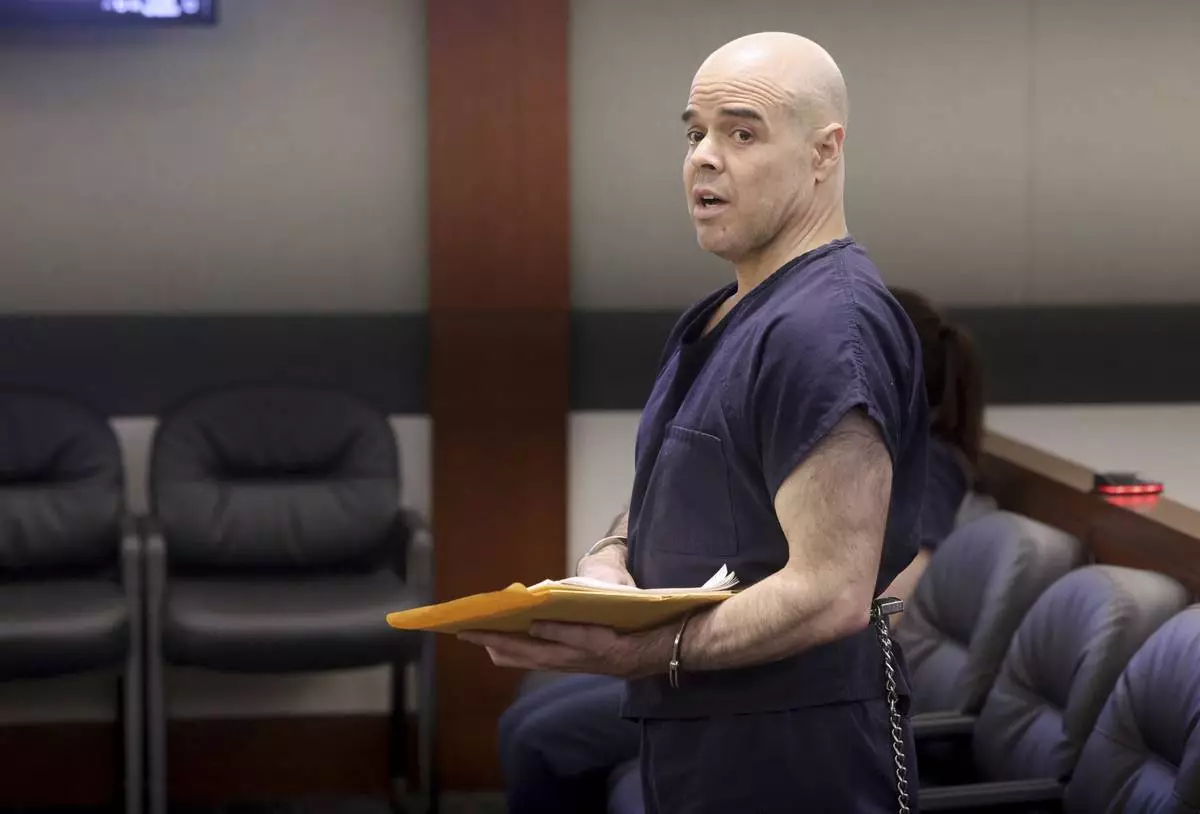
FILE - Former Clark County Public Administrator Robert Telles, who is accused of murdering investigative reporter Jeff German, argues in court during a hearing at the Regional Justice Center in Las Vegas Wednesday, Oct. 18, 2023. (K.M. Cannon/Las Vegas Review-Journal, File)
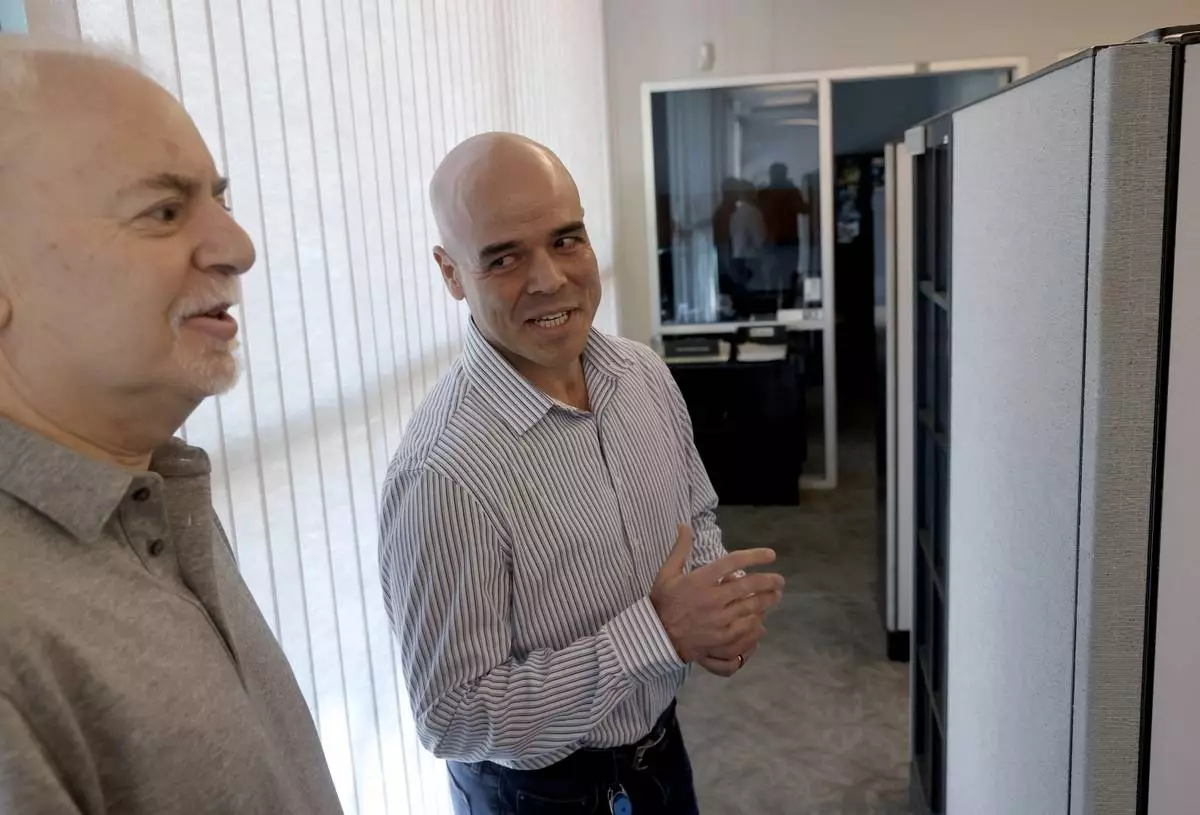
FILE - Clark County Public Administrator Robert Telles, right, talks to Las Vegas Review-Journal reporter Jeff German in his Las Vegas office, on May 11, 2022. (K.M. Cannon/Las Vegas Review-Journal via AP, File)
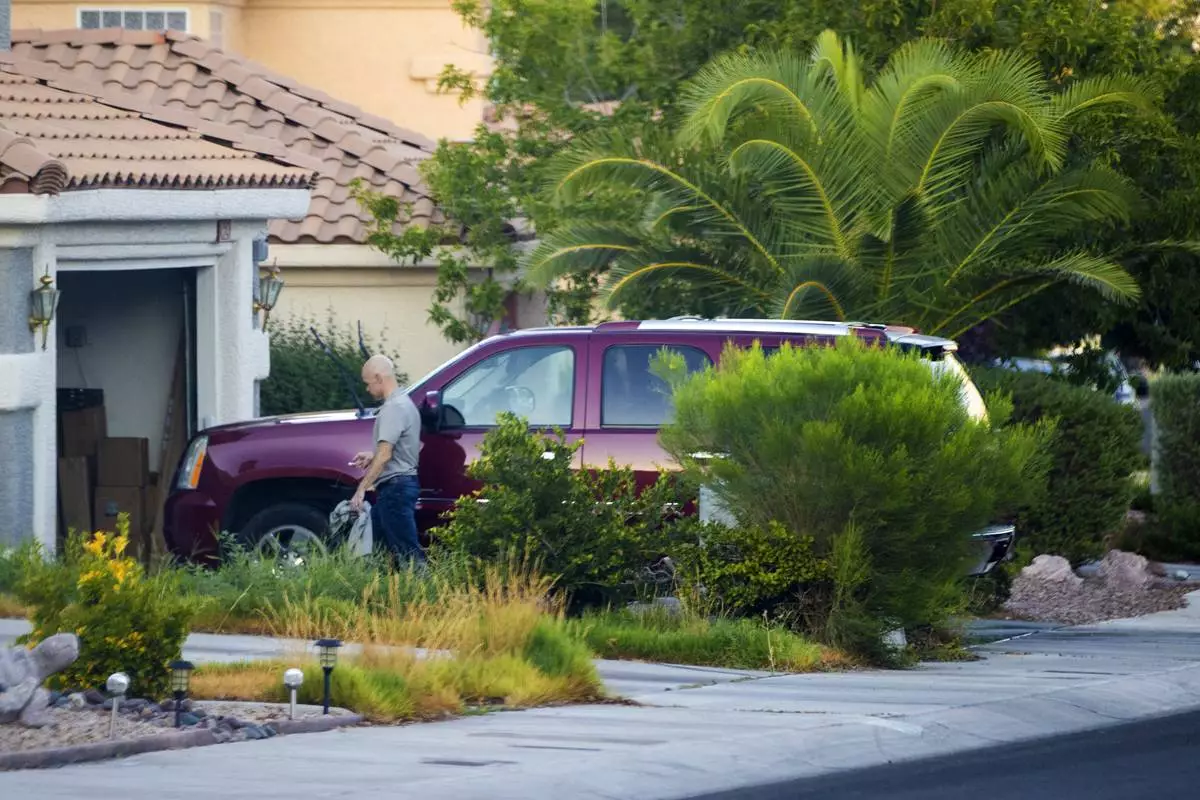
FILE - Outgoing Clark County Public Administrator Robert Telles washes his car outside his home, Sept. 6, 2022, in Las Vegas. (Benjamin Hager/Las Vegas Review-Journal via AP, File)
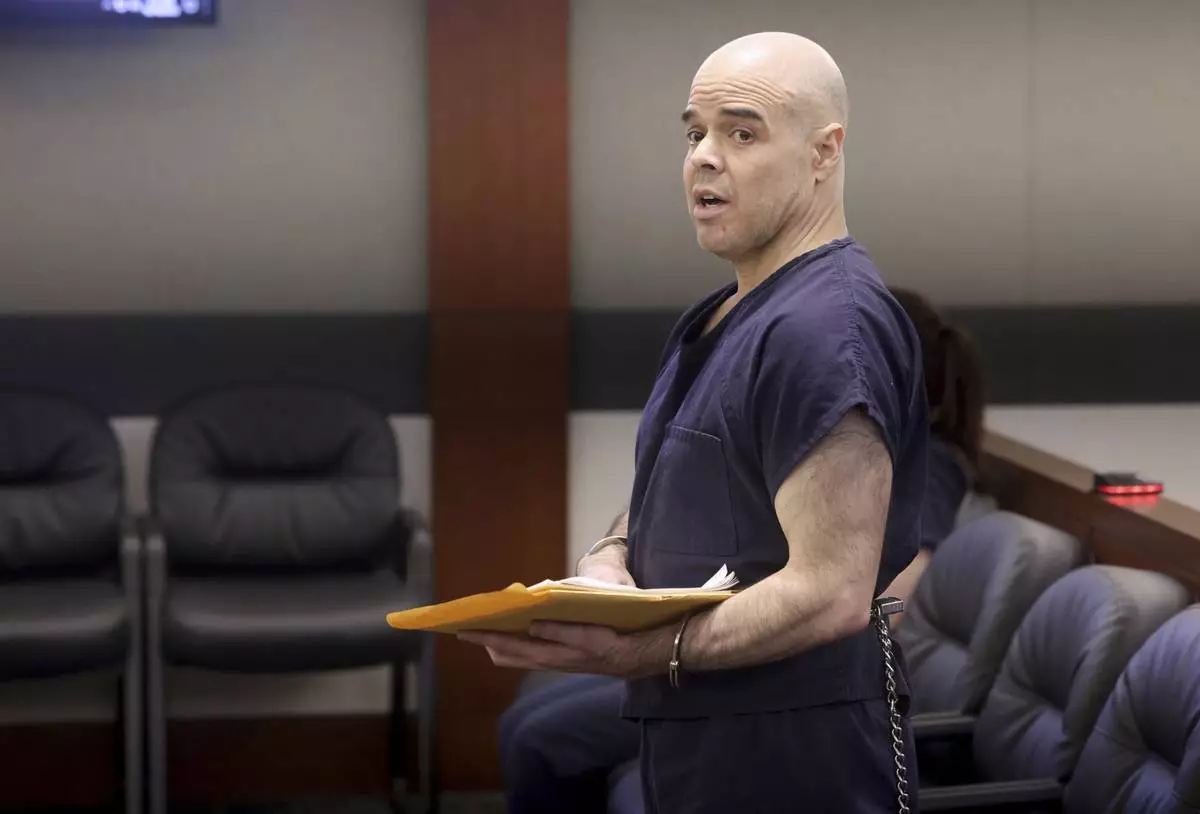
FILE - Former Clark County Public Administrator Robert Telles, who is accused of murdering investigative reporter Jeff German, argues in court during a hearing at the Regional Justice Center in Las Vegas, Oct. 18, 2023. (K.M. Cannon/Las Vegas Review-Journal via AP, File)
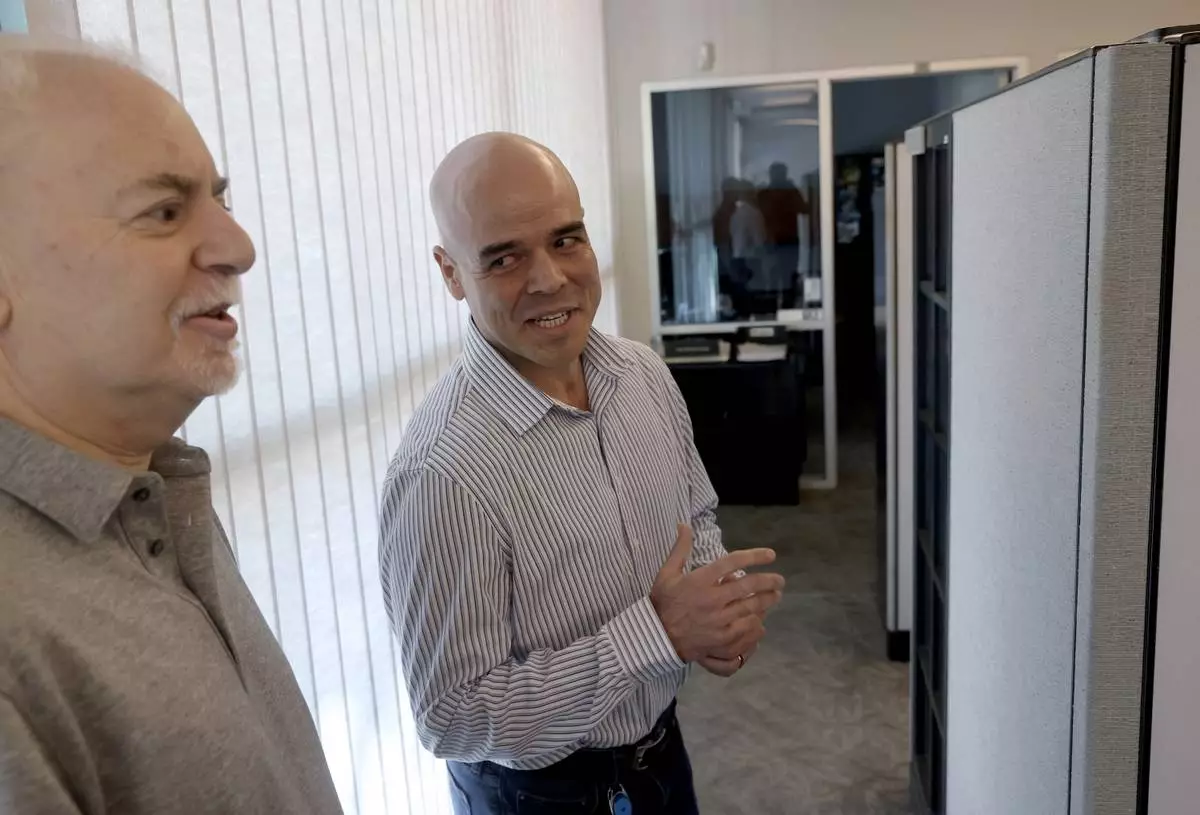
FILE - Clark County Public Administrator Robert Telles, right, talks to Las Vegas Review-Journal reporter Jeff German in his Las Vegas office, May 11, 2022. (K.M. Cannon/Las Vegas Review-Journal via AP, File)
ROME (AP) — Human rights groups voiced outrage Wednesday after Italy released a Libyan warlord on a technicality, after he was arrested on a warrant from the International Criminal Court accusing him of war crimes and crimes against humanity.
The Hague-based court, for its part, issued a more diplomatic response but its anger appeared evident. In a stern statement late Wednesday, the ICC reminded Italy that it is obliged to “cooperate fully” with its prosecutions and said it was still awaiting information about what exactly Rome had done.
The reaction came after the Italian government on Tuesday released and sent back home Ossama Anjiem, also known as Ossama al-Masri, who heads the Tripoli branch of the Reform and Rehabilitation Institution, a notorious network of detention centers run by the government-backed Special Defense Force.
Al-Masri had been arrested Sunday in Turin, where he reportedly had attended the Juventus-Milan soccer match the night before. The ICC warrant, dated the day before, accused al-Masri of war crimes and crimes against humanity committed in the Mitiga prison in Libya starting in 2015 that are punishable with life in prison.
The ICC said he was accused of murder, torture, rape and sexual violence. It said the warrant was transmitted to member states on Saturday, including Italy, and that the court had also provided real-time information that he had entered Europe.
The court said it had reminded Italy at the time to contact it “without delay” if it ran into any problems cooperating with the warrant.
But Rome’s court of appeals ordered al-Masri freed Tuesday, and he was sent back to Libya aboard an aircraft of the Italian secret services, because of what the appeals court said was a procedural error in his arrest. The ruling said Justice Minister Carlo Nordio should have been informed ahead of time, since the justice ministry handles all relations with the ICC.
The ICC said it had not been given prior notice of the Rome court's decision, as required, and “is seeking, and is yet to obtain, verification from the authorities on the steps reportedly taken.”
Al-Masri returned to Tripoli late Tuesday, received at the Mitiga airport by supporters who celebrated his release, according to local media. Footage circulated online showed dozens of young men chanting and carrying what appeared to be al-Masri on their shoulders.
“This is a stunning blow to victims, survivors and international justice and a missed opportunity to break the cycle of impunity in Libya,” said Amnesty International’s Esther Major, deputy director of research for Europe.
Nordio appeared in the Senate on Wednesday for a previously-scheduled briefing, and was grilled by outraged opposition lawmakers who demanded clarity about what happened. Former Premier Matteo Renzi accused the right-wing government of hypocrisy given its stated crackdown on human traffickers.
“But when a trafficker whom the International Criminal Court tells us is a dangerous criminal lands on your table, it’s not like you chase him down, you brought him home to Libya with a plane of the Italian secret services,” said Renzi of the Italia Viva party. “Either you’ve gone crazy or this is the image of a hypocritical, indecent government.”
The Democratic Party demanded Premier Giorgia Meloni respond specifically to parliament about the case, saying it raised “grave questions” given the known abuses in Libyan prisons for which al-Masri is accused. Nordio didn't respond.
Italy has close ties to the internationally recognized government in Tripoli, on whom it relies to patrol its coasts and prevent waves of migrants from leaving. Any trial in The Hague of al-Masri could bring unwanted attention to Italy’s migration policies and its support of the Libyan coast guard, which it has financed to prevent migrants from leaving.
Human rights groups have documented gross abuses in the Libyan detention facilities where migrants are kept, and have accused Italy of being complicit in their mistreatment.
Two humanitarian groups, Mediterranea Saving Humans and Refugees in Libya, which have documented abuses committed against migrants in Libyan detention facilities, said they were incredulous that Italy let al-Masri go.
David Yambio, a 27-year-old from South Sudan who said he was abused by al-Masri while he was detained at the Mitiga prison in 2019-2020, said he felt betrayed by Italy. Yambio, who eventually escaped from the prison and arrived in Italy on a smuggler’s boat in 2022, said he had a “fleeting feeling of justice” when he heard that al-Masri had been arrested in Turin.
“Those who waited long before me, the Libyans who are victims of his criminal network, his war crimes, have been wanting for this day to come,” said Yambio, who received asylum and now lives in Modena and runs his Refugees in Libya advocacy group. “But when it came, it was immediately extinguished hours before it could even truly be felt in our hearts.”
But Tarik Lamloum, a Libyan activist working with the Belaady Organization for Human Rights which focuses on migrants in Libya, said Italy’s release of al-Masri was expected. He said his release shows the power of militias who control the flow of migrants to Europe through Libya’s shores.
“Tripoli militias are able to pressure (Italy) because they control the migrants file,” he told The Associated Press.
Militias in western Libya are part of the official state forces tasked with intercepting migrants at sea, including in the EU-trained coast guard. They also run state detention centers, where abuses of migrants are common.
As a result, militias — some of them led by warlords the U.N. has sanctioned for abuses — benefit from millions in funds the European Union gives to Libya to stop the migrant flow to Europe.
The European Commission spokesman reaffirmed all EU members had pledged to cooperate with the court.
“We respect the court’s impartiality and we are fully attached to international criminal justice to combat impunity," said EU commission spokesman Anouar El Anouni. In a 2023 summit, the EU leaders committed “to cooperate fully with the court, including rapid execution of any pending arrests,” he added.
Magdy reported from Cairo. Paolo Santalucia in Rome and Molly Quell in The Hague contributed.
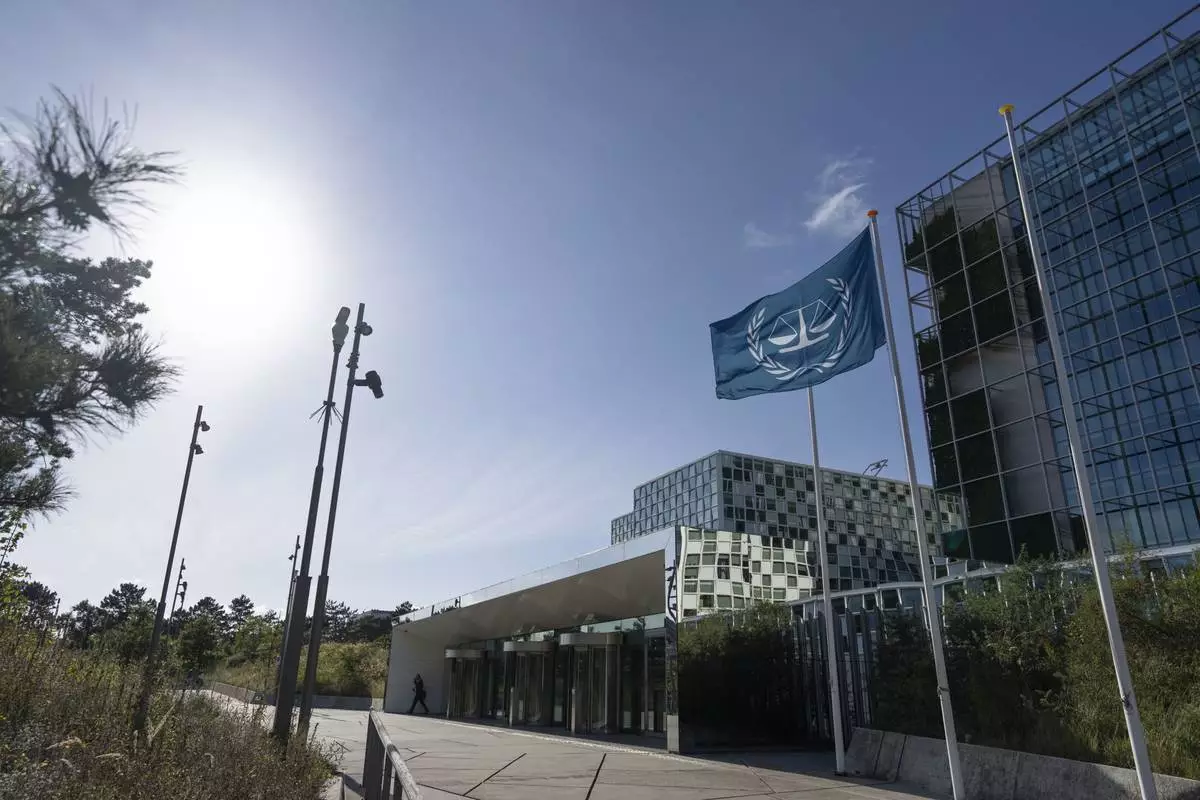
FILE - View of the ICC, the International Criminal Court, in The Hague, Netherlands, Monday, Sept. 16, 2024. (AP Photo/Peter Dejong, File)
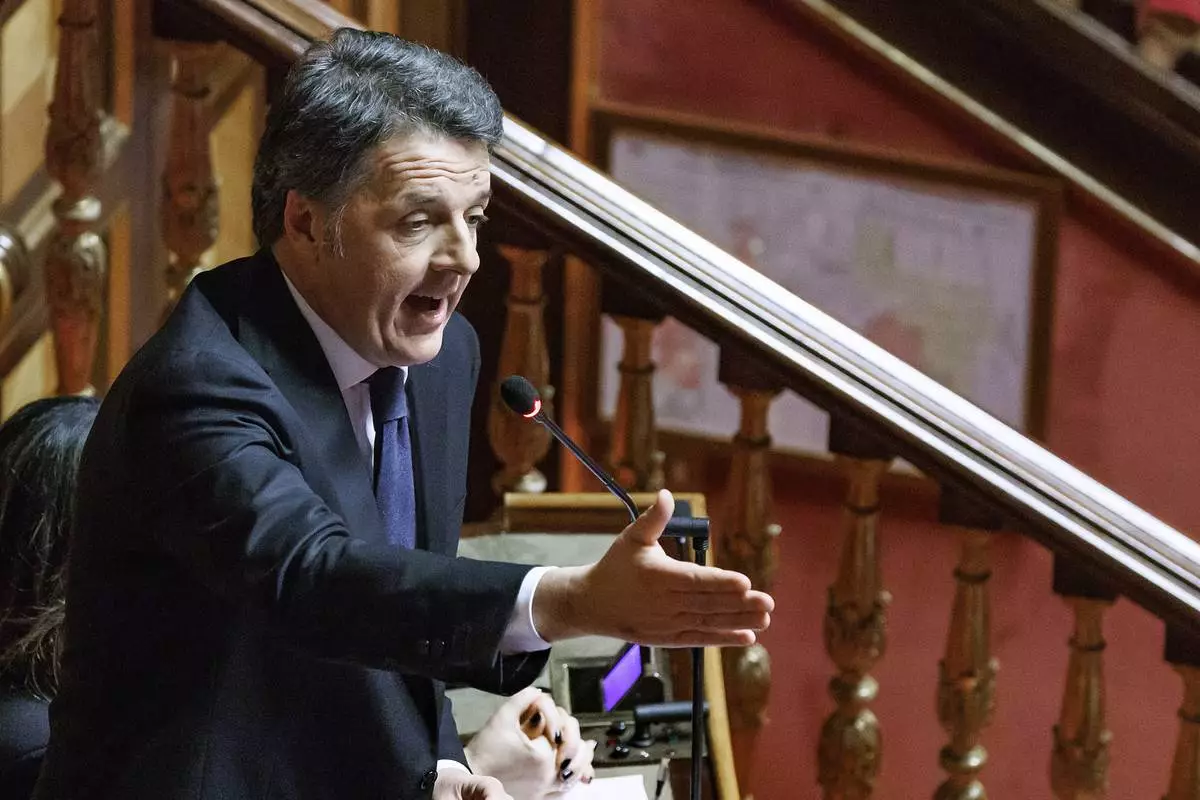
Former Prime Minister Matteo Renzi makes his remarks during Justice Minister Carlo Nordio's appearance at the Senate for the report on the justice administration, in Rome, Wednesday, Jan. 22, 2025. (Roberto Monaldo//LaPresse via AP)

Former Prime Minister Matteo Renzi makes his remarks during Justice Minister Carlo Nordio's appearance at the Senate for the report on the justice administration, in Rome, Wednesday, Jan. 22, 2025. (Roberto Monaldo//LaPresse via AP)
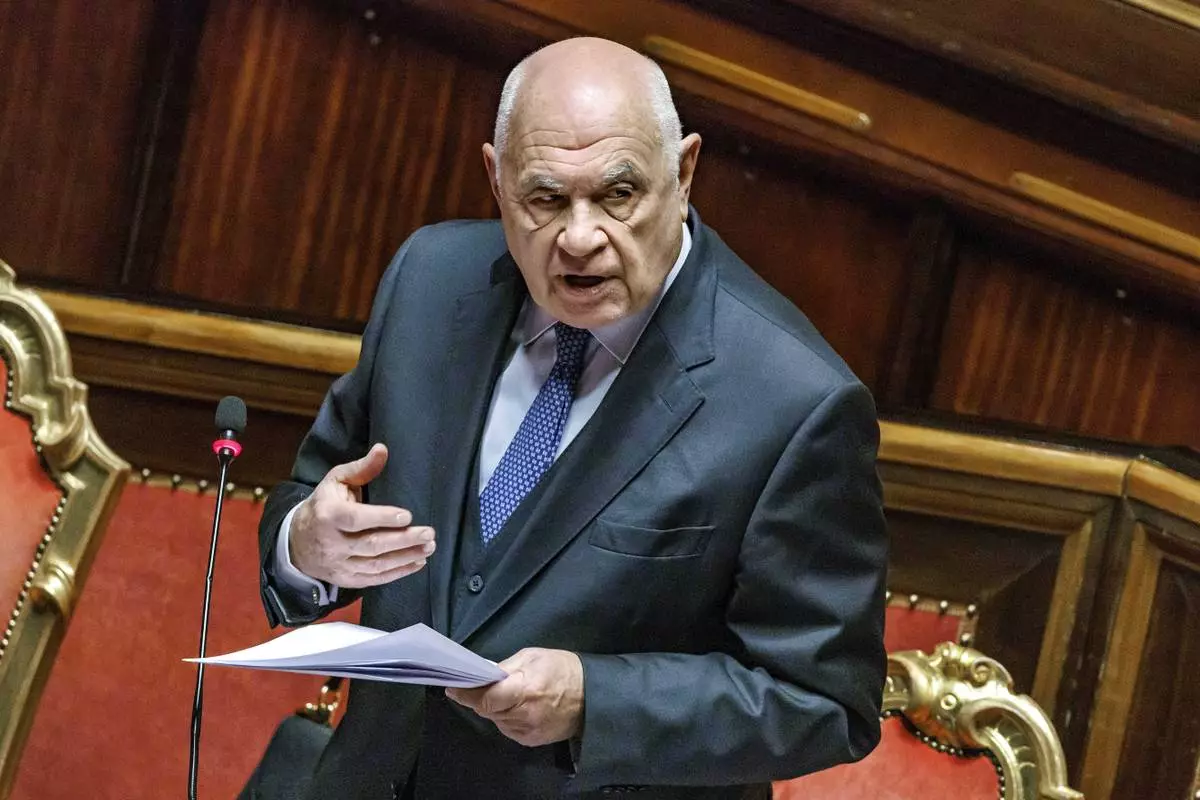
Justice Minister Carlo Nordio addresses the Senate during the report on the justice administration, in Rome, Wednesday, Jan. 22, 2025. (Roberto Monaldo//LaPresse via AP)
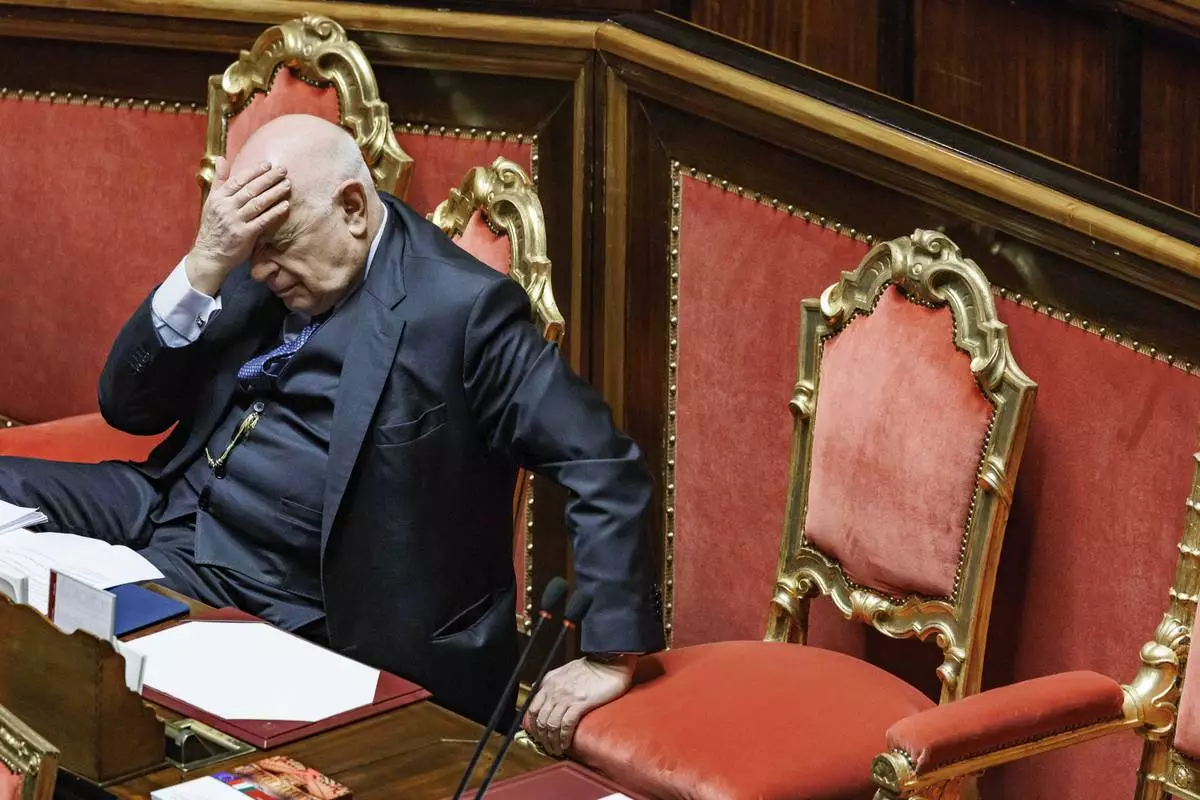
Justice Minister Carlo Nordio puts his hand to his head during the presentation of the report on the justice administration, at the Senate, in Rome, Wednesday, Jan. 22, 2025. (Roberto Monaldo//LaPresse via AP)
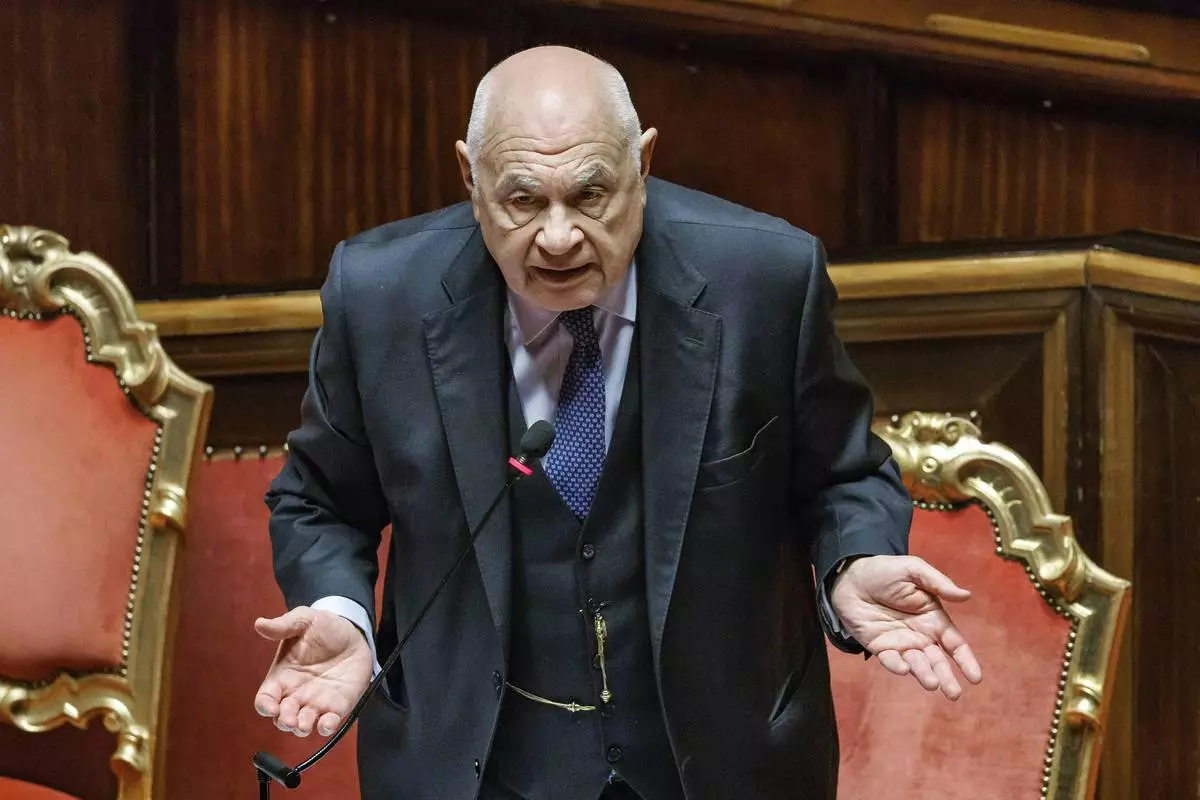
Justice Minister Carlo Nordio addresses the Senate during the report on the justice administration, in Rome, Wednesday, Jan. 22, 2025. (Roberto Monaldo//LaPresse via AP)










